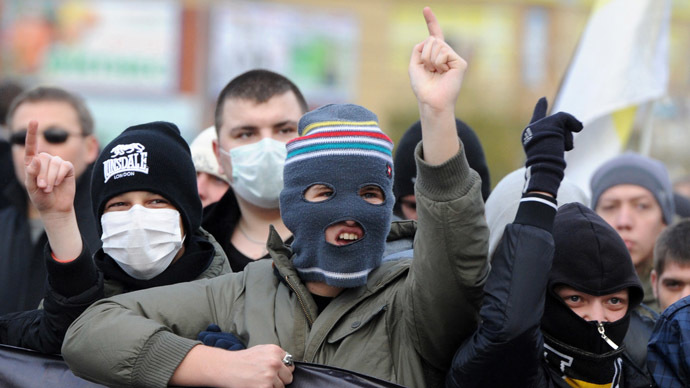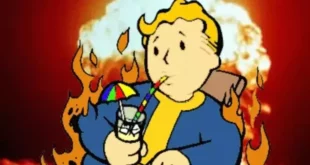Andrew Anglin
Daily Stormer
April 7, 2014

Though I have surely been supportive of Russia in this conflict between the East and West, I have made it clear that I will call out the nation when they do things which are against the principles I adhere to.
This is one of those things.
The Russian Lower House has passed the first draft of a bill which introduces prison sentences for the “public justification of Nazism.”
Those sponsoring the bill aim to have it signed into law before May 9, which is the anniversary of the Russian victory over National Socialist Germany in WWII.
RT:
The bill was approved unanimously on Friday.
“Our country has not simply defended itself. We have defended the whole world from Nazism. Our people suffered the greatest casualties in this war. For us, the rehabilitation of Nazism will always be a crime against our country and our people. Rehabilitation of Nazism is not only a shot fired at the past and mocking millions of victims. It is also a shot fired at the future, an instigation for new crimes against peace and security,”one of the main sponsors of the bill, the head of the Lower House Committee for Security Irina Yarovaya said as she presented the bill to MPs.
Earlier, Yarovaya has told the press that the urge for such a law is especially evident today in times of the violent political crisis in Ukraine launched and supported by radicals and neo-Nazis. “Ukraine is a living witness of what can be the result of such a policy, when Nazism is standing tall and manifests itself not only through propaganda but through actual crimes,” the Interfax news agency quoted the lawmaker as saying.
Once passed the bill would make it illegal to publicly deny the Nuremberg Tribunal verdict and the anti-Hitler coalition’s effort to defend international peace and security during the Second World War. The ban is also extended to knowingly spreading false reports about the crimes of anti-Nazi armies during the war and the fabrication of proof of such crimes.
Those convicted face fines of up to 300,000 rubles (about $8300) or prison terms of up to 3 years. The use of public office or the media raises the maximum punishment to 500,000 roubles in fines or up to 5 years behind bars with a ban from certain posts and professions for another 3 years.
The bill was initially drafted several years ago by majority United Russia caucus. The initial version drew criticism from professional lawyers over the preciseness of various legal formulas and was recalled. The new draft was submitted for public discussion in Summer 2014 and has already received an approval from the Supreme Court and support from all four parliamentary parties.
This is a confusing issue, as part of the Russian nationalist identity is based in their victory over Germany.
Even hardcore NS organizations such as Slavic Union appear confused by the issue, supporting Hitler as a man and publishing Mein Kampf, even using the Swastika, while also celebrating the Russian victory over Germany as a proud part of their history.
We have a similar situation in Greece, where the Golden Dawn has based itself on the ideology of Adolf Hitler, but has to deal with the historical fact that Germany did indeed invade Greece during the war, and many people suffered for it.
So, the situation is complicated. I will not dismiss Putin, and certainly not Russia as a whole, for this, but I will note that while many of our interests coincide with those of Russia, they are not a pure racialist National Socialist state, and thus there will be conflict.
I will also note that this law is probably largely symbolic. At present, though similar laws exist in Russia, they usually result in a slap on the wrist when violated, rather than a prison sentence. There is also the issue that “Neo-Nazism” is often not purely political, but a form of hooliganism.
While I believe that as long as Russian interests continue to coincide with our own, we should indeed celebrate their victories, it is important to keep an eye on this sort of thing.
 Daily Stormer The Most Censored Publication in History
Daily Stormer The Most Censored Publication in History


